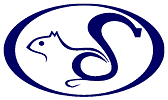|
|
If you've searched the Knowledge Base and not found your answer, you may ask
a new question of technical support.
More Instructions...
|
WebWhacker 4.0 for Macintosh
Q: When browsing a whacked page, how can I tell if a
link points to a page that has been whacked or
not?
A: Move cursor over link; the Status line at the
bottom of the browser will indicate the location
of the page. If the link starts with http://,
then the page has not been whacked. If the link
starts with file:///, then the page has been
whacked.
Top
Q: How do I know if my computer is behind a firewall?
A: If your Web browser is working correctly, you can
look at its configuration to see if it is
configured for a firewall.
In Netscape Navigator, select Options / Network
Preferences� then click on the Proxies tab. If No
Proxies is selected, then your computer is not
behind a firewall. If Manual Proxy Configuration
is selected, you can click on View� to see the IP
Address and Port Number of the proxy server.
In Microsoft Internet Explorer, select Edit /
Options� then click on the Proxy tab. If nothing
is entered in the HTTP Proxy field, then your
computer is not behind a firewall.
Another way to determine if your computer is
behind a firewall is to ask your Network
Administrator.
Top
Q: In WebWhacker, do the Proxy and Port fields have
to be filled in?
A: The Proxy and Port fields have to be filled in if
your computer has to go through a Proxy server
(firewall) to access the Web. If your Web browser
is configured for a proxy server, then WebWhacker
will have to be configured as well.
Top
Q: What do I enter in WebWhacker as the proxy server?
A: If your Web browser is configured with a proxy
server, that same information must be entered
into WebWhacker. If your Web browser is not
configured for a proxy server, the proxy
information in WebWhacker must also remain blank.
To add the proxy server information to
WebWhacker, select Options / Preferences� and
click on the Whack Settings tab. Enter the IP
Address and Port number of the proxy server in
the specified fields.
Top
Q: Where do the whacked files go?
A: All whacked pages and objects go into the
location you specified when you created the New
Group. You should create a new folder every time
you create a New Group.
Top
Q: Why are the whacked files from different groups
all stored in one folder?
A: This occurs when you create a New Group and don�t
create a new folder. Each New Group should be
created in a separate folder. On the New Group
dialog, click on New Folder and name the new
folder the same name as the new group.
Top
Q: Why can�t I whack a search results page?
A: When you start a search from your Web browser,
the Web server runs a program that returns the
result of your search to your Web browser. That
results page is not a separate HTML page stored
on the Web server; it was created �on the fly� by
the Web server search engine, and it may not be
able to be defined using a URL. WebWhacker can
only grab and whack pages that can be defined as
a URL.
However, a workaround is to copy selected links
from the search results page to WebWhacker. You
can easily do so by holding down the mouse button
on the link and selecting Copy Link to Clipboard
(in Internet Explorer) or Copy This Link Location
(in Navigator). Then you can add the URL to
WebWhacker by selecting Add / New URL� and
pasting the URL by pressing F4 (or Command-V) in
the New URL dialog.
Top
Q: Why can�t I access the Apple Guide Help?
A: System 7.0 and 7.1 did not come with support for
Apple Guide. You can download an Apple Guide
extension that does work with these OS versions
from
http://rampages.onramp.net/~stepup/GWT/GWTranslato
r.html.
Top
Q: My computer crashed while whacking and after
restarting, it doesn't show what has been
whacked. How do I retrieve the list of whacked
files?
A: First, quit WebWhacker. Then, using Finder,
navigate to the folder containing the whacked
Group. Rename the file that has the
extension .bak (such as FFG.bak) to the same name
with the extension .wwd (such as FFG.wwd). Now
restart WebWhacker and you should see the
contents of that group.
Top
|
|
 Blue Squirrel
Blue Squirrel
 Blue Squirrel
Blue Squirrel